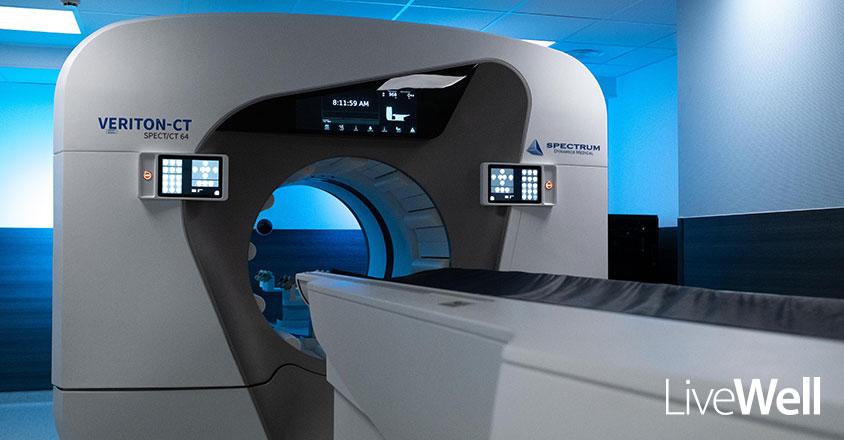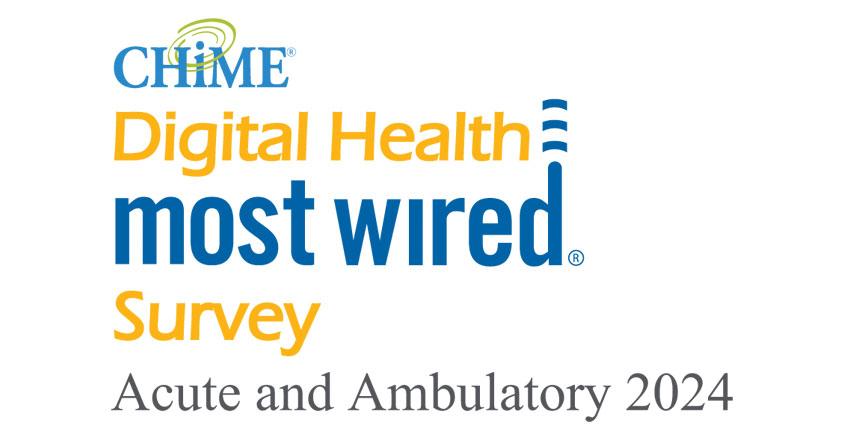Dean Daniels is a retired veteran. He enjoys golfing, swimming and spending a lot of time hiking with his two Giant Schnauzers. Dean has followed his routine for years. He is also careful about what he eats.
Dean thought he was doing everything he could to take care of his heart.
However, he didn’t consider his family’s history of heart disease.
On the afternoon of June 23, 2024, Dean felt a burning and numbness sensation in his arms. Next, his teeth and jaw went numb. Then, he felt like there was a cement block on his chest.
Unsure of what it could be, he thought it must be anxiety and took a prescription medication he had. Regretfully, the symptoms didn’t go away, so late that night, he asked his wife to take him to the Genesis HealthCare System Emergency Department.
Life-saving care
After undergoing tests, Dean was quickly scheduled for surgery.
“Dean had 99% blockage in his left main coronary artery,” said Trevor Ellison, M.D., Ph.D., MBA, Fellowship-trained and Board-certified Cardiothoracic Surgeon and Medical Director of Cardiothoracic Surgery at the Genesis Heart & Vascular Institute.
“The left main coronary artery gives blood to the entire left side of the heart, and his left coronary artery system was the dominant system in his heart, which is seen in about 15% of the population,” said Dr. Ellison. “We performed a double coronary artery bypass grafting by taking an artery from the inside of his chest and a vein from his leg to create a new path for blood to flow to the heart.”
Dean remained in the hospital for a week.
“The Genesis team was outstanding,” said Dean. “Every person there, from the doctors to the nurses, treated me with compassion. They were tremendous. I felt proud that our hospital in Zanesville provided such great care."
“I recommend Genesis to everyone I know, including my friends in Columbus.” – Dean Daniels
One step at a time
After his procedure, Dean started his recovery through the Genesis Cardiac Rehabilitation Program. He said the Cardiac Rehab team is supportive and watch while you exercise. They made him feel safe on his road to recovery.
“It is hard to believe how far I have progressed in such a short amount of time,” said Dean.
Thirteen weeks after his procedure, Dean hiked a mile and a half with his two dogs in the woods and golfed nine holes.
“I’ve always eaten healthy and exercised,” said Dean. “However, I didn’t seriously consider genetics. You need to know your family history and talk to your doctor about it. We could have taken precautions.”
“I’m lucky Genesis gave me another chance,” said Dean. “My other advice is if you don’t feel well, to get medical help immediately. Don’t wait.”
Maintaining good health as you age is usually a combination of things.
“Dean had a significant family history of heart disease in relatives under the age of 50,” said Dr. Ellison. “When heart disease runs in families at a young age, an individual has the risk of having heart disease at a young age, even younger than their relatives were diagnosed.”
“It is important when patients have a history of premature coronary artery disease to ensure that their primary care physician and cardiologist know about it,” said Dr. Ellison. “Also, patients should remain vigilant for symptoms of heart disease such as chest pain or pressure, shortness of breath, lightheadedness with activity, nausea, sweating or generalized fatigue.”
Meet Dean’s doctor
Trevor Ellison, M.D., Ph.D., MBA, Fellowship-trained and Board-certified Cardiothoracic Surgeon and Medical Director of Cardiothoracic Surgery at the Genesis Heart & Vascular Institute, performed Dean Daniels’ double coronary artery bypass grafting surgery.
As leader of the Genesis cardiothoracic program, Dr. Ellison performs a variety of procedures, including coronary artery bypass grafting, open heart surgery for valve replacement and repair, open heart surgery for aortic replacement and minimally invasive options for valve replacement and aortic repair.
Dr. Ellison is always researching advancements to diagnose and treat heart conditions. “Cardiothoracic surgery is constantly evolving,” said Dr. Ellison. “There are many minimally invasive and innovative options available to help heart patients.”
Receiving his Doctor of Medicine degree at the Johns Hopkins University School of Medicine in Baltimore, Maryland, Dr. Ellison completed his General Surgery Residency and Cardiothoracic Surgery Fellowship at The Johns Hopkins Hospital. Board-certified in Thoracic and Cardiac Surgery, Dr. Ellison has a Ph.D. in Health Economics and Policy from the Johns Hopkins Bloomberg School of Public Health and an MBA from the Cambridge University Judge Business School in the United Kingdom.










